Equal Right is a not-for-profit campaign organisation based in Manchester (UK). The organisation is supported by an International Advisory Board, which is made up of people with knowledge or experience of basic income or related issues from around the world.
Staff
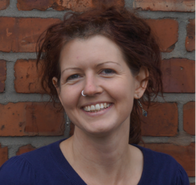
Executive Director
Laura Bannister is a political economist, justice activist and researcher. In various roles she has worked on global justice, trade justice, universal basic income, child rights and environmental issues, and she has helped to draft basic income manifesto proposals during general elections. She studied political economy with research focused on worldwide inequality and the potential for a global minimum wage. She has worked with the Eastern Africa Greens Federation in Uganda and Kenya and with NGOs in Zambia. In 2016 she set up Equal Right (formerly World Basic Income) to campaign for North-South redistribution and a secure income as a human right. Contact Laura at info[at]equalright.org
Laura Bannister is a political economist, justice activist and researcher. In various roles she has worked on global justice, trade justice, universal basic income, child rights and environmental issues, and she has helped to draft basic income manifesto proposals during general elections. She studied political economy with research focused on worldwide inequality and the potential for a global minimum wage. She has worked with the Eastern Africa Greens Federation in Uganda and Kenya and with NGOs in Zambia. In 2016 she set up Equal Right (formerly World Basic Income) to campaign for North-South redistribution and a secure income as a human right. Contact Laura at info[at]equalright.org
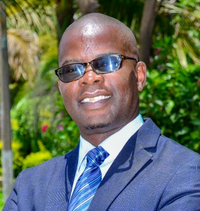
Senior Campaigns Manager
Sydney Chisi is a climate and economic justice specialist based in Harare, Zimbabwe. With experience spanning more than twenty years, he has worked at the national, continental and global level with campaigns and social movements that pursue pro-poor people power and justice against neoliberalism and climate breakdown. He holds a Masters degree in International Relations and Public Policy and has a background in geology. He has become part of the emerging thought leadership on climate justice, sits on boards at the national and continental level, is the author of a number of climate and economic justice publications and is the founder of Reyna Trust, a climate justice-focused organisation based in Zimbabwe. Contact Syd at climate[at]equalright.org
Sydney Chisi is a climate and economic justice specialist based in Harare, Zimbabwe. With experience spanning more than twenty years, he has worked at the national, continental and global level with campaigns and social movements that pursue pro-poor people power and justice against neoliberalism and climate breakdown. He holds a Masters degree in International Relations and Public Policy and has a background in geology. He has become part of the emerging thought leadership on climate justice, sits on boards at the national and continental level, is the author of a number of climate and economic justice publications and is the founder of Reyna Trust, a climate justice-focused organisation based in Zimbabwe. Contact Syd at climate[at]equalright.org
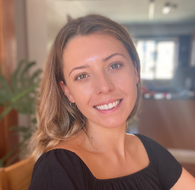
Senior Communications Manager
Lucy Shaverin is a communications specialist with over a decade's worth of experience working for purpose-driven teams in the third sector. She has worked for organisations in the humanitarian, development, peacebuilding, and climate justice spaces, including key work on Global Witness highly successful 'Toxic Friends' campaign against the fossil fuel industry. She has a strong grounding in all areas of communications and has a track record of bringing complicated and technical subjects to a broader audience Lucy. She is currently based in Nairobi, Kenya. Contact Lucy at comms[at]equalright.org
Lucy Shaverin is a communications specialist with over a decade's worth of experience working for purpose-driven teams in the third sector. She has worked for organisations in the humanitarian, development, peacebuilding, and climate justice spaces, including key work on Global Witness highly successful 'Toxic Friends' campaign against the fossil fuel industry. She has a strong grounding in all areas of communications and has a track record of bringing complicated and technical subjects to a broader audience Lucy. She is currently based in Nairobi, Kenya. Contact Lucy at comms[at]equalright.org
Directors
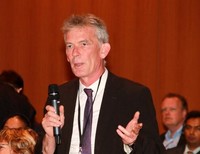
Paul Harnett is an economist. He works on macroeconomics, public finance management and poverty reduction, with specialisms in healthcare, agricultural economics, anti-corruption schemes, community participation, and safety nets including cash transfers. He has worked with the World Bank, European Commission, UNDP, UN Food and Agriculture Organisation, World Health Organisation, the UK’s Department for International Development, the African Development Bank, SECO, USAID and various NGOs, and he sits on the IMF’s Fiscal Affairs Department expert panel. He has worked throughout Africa, Asia, Central America, Europe and the USA.
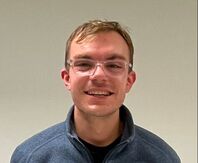
Louis Strappazzon is an active campaigner for universal basic income in Manchester, UK. He helps run UBI Lab Manchester, a group which is part of the global UBI Lab Network and is pushing for a local basic income pilot to build evidence and pressure for wider scale UBI implementation. He has volunteered for World Basic Income since 2020, producing our podcast Act Global and providing research support. Louis has a BA in History and Politics and and MA in Political Economy from the University of Manchester. He currently works at the same university's Faculty of Biology, Medicine and Health, in their Teaching and Learning office.
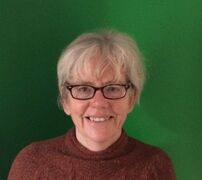
Sarah Methven is a governance and social development consultant. She works on empowering citizens and civil society organisations to engage with governments and decision makers on rights, livelihoods, justice, community resource management and monitoring. After completing a Masters degree in Social Policy and Social Development she joined www.intrac.org and is now an associate. She has worked with the Department for International Development, the EU and other donors, and for organisations including Oxfam GB and Concern Worldwide. She lived in Southern Africa for ten years and now volunteers with Bristol Signing Support group that supports asylum seekers. After nearly thirty years working in development, she is excited by the potential of a world basic income to empower people and reduce global inequality.
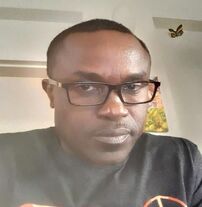
Christopher Nwafor is the Executive Director at Africa Observatory, a public-benefit organization engaged in research and advocacy around social and economic issues in Africa. He is the founding Director and Program Manager at Coastal Resources Centre South Africa, the Africa Coordinator at Citizen Network, and Chief Executive Officer at Inclusion Alliance. He has a background in partnership work to empower communities and producer groups, and capacity building of NGO partners and public agencies across West and Southern Africa. He currently provides advisory, programme management and fundraising support to the non-profit sector as an independent consultant. He holds a Doctorate in Agriculture and Masters’ degrees in Public Administration and Development Studies.
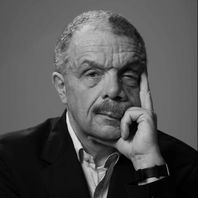
Mike Dowden is an economist. He works on microeconomics, regional economic development focussing on labour market issues and dynamics (un/employment, routes into work, gender, training et al), SME and entrepreneur matters (especially survival entrepreneurship), programme development and financing. Mike’s experience has been with DfID, the European Commission, the World Bank and various NGOs. This work has taken place throughout Europe, Africa, the MENA and Gulf States, Asia and North America.
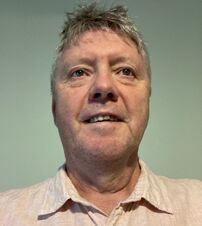
Rick Fowler recently retired from full time employment after 17 years with the New South Wales State Government. Rick’s roles included Policy Manager for Climate Change within the Department of Primary Industries prior and Director of Coal Innovation NSW, managing a $100 million research fund for the reduction of emissions from the use of coal. Preceding his government employment, Rick was the Executive Officer for Australia’s Construction, Forestry Mining and Energy Union. Rick has worked on numerous domestic and international campaigns protecting workers’ rights and wages. He has a Master of Arts in Political Science and International Affairs as well as Grad Cert in Environment Management. He currently volunteers at the Salvation Army kitchen where he continues with his first employment skill of cooking.
International Advisory Board
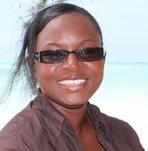
Caroline Teti is a development scientist based in Kenya.
She works at GiveDirectly as Director of Recipient Advocacy. Previously as a Field Director at GiveDirectly, she set-up the Basic Income pilot experiment that currently sends monthly transfers to over 20,000 beneficiaries in Kenya. She has spoken in various forums on the impact of cash on poor communities. She has worked for non-profits in East Africa and Europe and for the government of Kenya. She holds holds a postgraduate degree in Development Communication and a postgraduate Diploma in Gender and Human Rights.
She works at GiveDirectly as Director of Recipient Advocacy. Previously as a Field Director at GiveDirectly, she set-up the Basic Income pilot experiment that currently sends monthly transfers to over 20,000 beneficiaries in Kenya. She has spoken in various forums on the impact of cash on poor communities. She has worked for non-profits in East Africa and Europe and for the government of Kenya. She holds holds a postgraduate degree in Development Communication and a postgraduate Diploma in Gender and Human Rights.
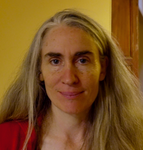
Caroline Whyte is an ecological economist who undertakes research and advocacy for the Irish think-tank Feasta (The Foundation for the Economics of Sustainability).
Caroline is the main author of a series of Feasta submissions and publications which include analyses of Universal Basic Income and commons-based taxation. She is a member of the Steering Groups of the Irish Environmental Pillar and Stop Climate Chaos Ireland and the Economic Transition Working Group of the European Environmental Bureau, and she represents Feasta in the global Wellbeing Economy Alliance.
Caroline is the main author of a series of Feasta submissions and publications which include analyses of Universal Basic Income and commons-based taxation. She is a member of the Steering Groups of the Irish Environmental Pillar and Stop Climate Chaos Ireland and the Economic Transition Working Group of the European Environmental Bureau, and she represents Feasta in the global Wellbeing Economy Alliance.
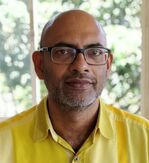
Rahul Basu is Research Director at Goa Foundation, an environmental non-profit in India.
He is technical advisor to Mines, Minerals & People and on the India advisory board of the India Network for Basic Income. Rahul is a member of INSEE (Indian Society for Ecological Economics), EAERE (European Association of Environmental and Resource Economists), the Goenchi Mati Movement and The Future We Need. He has published papers in Economics & Political Weekly on mining and intergenerational equity. His experience includes finance & accounting, behavioural economics and public policy.
He is technical advisor to Mines, Minerals & People and on the India advisory board of the India Network for Basic Income. Rahul is a member of INSEE (Indian Society for Ecological Economics), EAERE (European Association of Environmental and Resource Economists), the Goenchi Mati Movement and The Future We Need. He has published papers in Economics & Political Weekly on mining and intergenerational equity. His experience includes finance & accounting, behavioural economics and public policy.
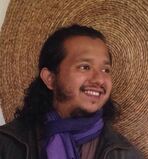
Julio Linares in an economic anthropologist and activist from Guatemala.
He is currently based in Berlin, where he explores the intersection between complementary currencies and basic income beyond the nation-state. He does social outreach work for the Basic Income Earth Network and holds an Msc from the Anthropology department at the London School of Economics.
He is currently based in Berlin, where he explores the intersection between complementary currencies and basic income beyond the nation-state. He does social outreach work for the Basic Income Earth Network and holds an Msc from the Anthropology department at the London School of Economics.

Karen Jooste is the founder and director of RightfulShare, an income movement in South Africa.
The movement calls for basic economic security by replacing charitable aid with a dividend paid directly to South Africans as their rightful share of the economy. The organisation is building a use case in a rural town, demonstrating how access to a basic amount of cash promotes justice and unlocks innovation in a context where wage work is no longer the norm. Karen previously served as a Member of Parliament and holds a degree in Sociology from the University of Stellenbosch.
The movement calls for basic economic security by replacing charitable aid with a dividend paid directly to South Africans as their rightful share of the economy. The organisation is building a use case in a rural town, demonstrating how access to a basic amount of cash promotes justice and unlocks innovation in a context where wage work is no longer the norm. Karen previously served as a Member of Parliament and holds a degree in Sociology from the University of Stellenbosch.
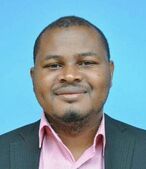
Frank Kamanga is a Lecturer in Economics at the Catholic University of Malawi.
Frank leads the Basic Income Malawi group and is a global ambassador for the universal basic income movement. He is a former Economist of the Reserve Bank of Malawi and has co-founded two non-governmental organizations: Global Hope Mobilization and Centre for Child Development and Research. As a dynamic Economist, his domains of change-making include universal basic income, business economics, agriculture, digital economy and youth development.
Frank leads the Basic Income Malawi group and is a global ambassador for the universal basic income movement. He is a former Economist of the Reserve Bank of Malawi and has co-founded two non-governmental organizations: Global Hope Mobilization and Centre for Child Development and Research. As a dynamic Economist, his domains of change-making include universal basic income, business economics, agriculture, digital economy and youth development.

Bruna Augusto is a founder of the ReCivitas Institute in Brazil.
She is co-responsible for the Brazilian Pilot Project of Basic Income at Quatinga Velho, the Basic Income Startup, and a developer of the Direct Democracy platform and the alternative intellectual property enabler the RobinRight.org license. She continues to work as a biologist and publisher alongside social activism.
She is co-responsible for the Brazilian Pilot Project of Basic Income at Quatinga Velho, the Basic Income Startup, and a developer of the Direct Democracy platform and the alternative intellectual property enabler the RobinRight.org license. She continues to work as a biologist and publisher alongside social activism.
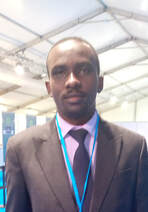
Didier Nshimirimana is a lawyer and a climate justice and human rights advocate, committed to mobilising political will for better laws and policies to address the climate crisis and human rights.
He works with communities in Burundi, Rwanda and Kenya on climate change adaptation, resilience and legal aid in partnership with organisations including UNDP and USAID. Since 2020 Didier has been the Director of the East Africa Mother Earth Project and participated in COP26 in Scotland as an UNFCCC Observer. He believes that a greater diversity of voices is needed in order to create sustainable solutions to global challenges, and he trusts in the power of communities to boost and sustain their own social and economic resilience when provided with appropriate empowerment and support.
He works with communities in Burundi, Rwanda and Kenya on climate change adaptation, resilience and legal aid in partnership with organisations including UNDP and USAID. Since 2020 Didier has been the Director of the East Africa Mother Earth Project and participated in COP26 in Scotland as an UNFCCC Observer. He believes that a greater diversity of voices is needed in order to create sustainable solutions to global challenges, and he trusts in the power of communities to boost and sustain their own social and economic resilience when provided with appropriate empowerment and support.
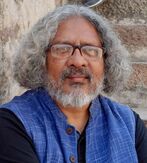
Sarath Davala is the Vice President of the Basic Income Earth Network, and the coordinator of India Network for Basic Income (INBI).
He is an independent sociologist based in Hyderabad, India. He was the Research Director of the Indian Basic Income Pilot Study with R. Jhabvala, S.K. Mehta, and G. Standing, and they co-edited Basic Income: A Transformative Policy for India? He is also the co-founder of Mission Possible 2030 which is a global initiative that links basic income and UN's Sustainable Development Goals. Prior to this, Sarath was an Associate Professor at the Indian Institute of Management Bangalore, India.
He is an independent sociologist based in Hyderabad, India. He was the Research Director of the Indian Basic Income Pilot Study with R. Jhabvala, S.K. Mehta, and G. Standing, and they co-edited Basic Income: A Transformative Policy for India? He is also the co-founder of Mission Possible 2030 which is a global initiative that links basic income and UN's Sustainable Development Goals. Prior to this, Sarath was an Associate Professor at the Indian Institute of Management Bangalore, India.
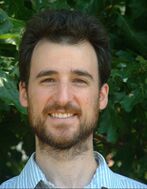
Brent Ranalli is an environmental policy practitioner and researcher.
His book Common Wealth Dividends: History and Theory recounts the principle of common wealth dividends (the idea that those who make private use of common resources should compensate those who are excluded) in three different domains: as applied to land by Thomas Paine and others; as applied to oil and other natural resources starting with the Alaska Permanent Fund; and as applied to the atmosphere as a carbon sink. The book also situates the exploitation of natural resources for dividends within a larger framework of ecological sustainability, and investigates the extension of the idea of common wealth dividends beyond nature to man-made common resources like our financial and monetary systems.
His book Common Wealth Dividends: History and Theory recounts the principle of common wealth dividends (the idea that those who make private use of common resources should compensate those who are excluded) in three different domains: as applied to land by Thomas Paine and others; as applied to oil and other natural resources starting with the Alaska Permanent Fund; and as applied to the atmosphere as a carbon sink. The book also situates the exploitation of natural resources for dividends within a larger framework of ecological sustainability, and investigates the extension of the idea of common wealth dividends beyond nature to man-made common resources like our financial and monetary systems.
